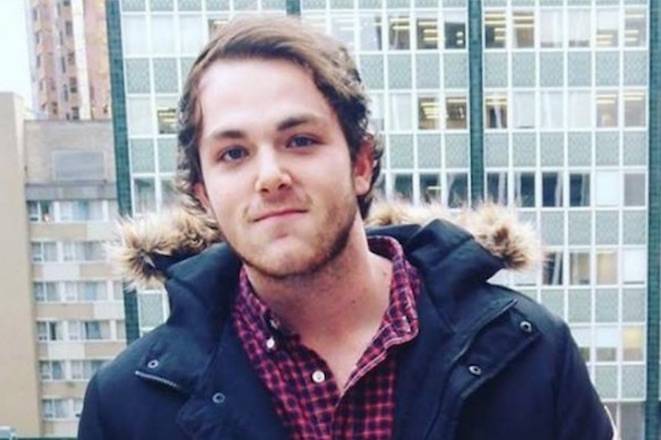The University of Calgary says it has no grounds to expel a student convicted of sexual interference of a 13-year-old girl in British Columbia.
The administration made the comment Thursday in the face of a petition signed by a growing number of people that calls for the expulsion of Connor Neurauter.
University Provost Dru Marshall said the situation is complicated and difficult, but the crime took place before Neurauter was enrolled as a student.
“The matter in British Columbia occurred before Mr. Neurauter was a student at the University of Calgary,” Marshall said in a statement.
“This is important, because our policies do not apply to activity that occurred before the person was a member of our campus community. We have no grounds on which to expel him.”
Marshall said the university’s position does not mean that it condones sexual violence, harassment or puts the rights of a convicted individual over the safety of the university community.
He said Neurauter has not been on campus since Tuesday, and has been advised not to return for the remainder of the term.
In November, Neurauter, 21, pleaded guilty in a Kamloops, B.C., court to one count of sexual interference with a minor. Another charge of possession of child pornography was later dropped.
Earlier this month he was sentenced to 90 days in jail, two years probation and is to be registered as a sex offender.
The B.C. prosecution service said he served the first day of his sentence on Jan. 4, but the judge permitted him to serve the remainder starting May 4 after finishing his semester at the University of Calgary.
By Thursday afternoon, more than 46,000 people had signed the petition urging the university to expel Neurauter.
“While the courts have seemingly failed the victim, the University of Calgary now has the opportunity to help change the narrative of this story,” the petition says.
His mother, Susan Neurauter, said the university asked him to stay off campus, in part for his own safety.
She said her son has been threatened online and she’s heard students are demanding class lists to find out where he’s going to be on campus.
She said there’s nothing unusual about a court allowing an intermittent sentence and her son was not treated differently.
“They offered him an opportunity to better himself and I don’t understand what the problem is with that.”
In interviews with Postmedia and CBC News, the victim’s mother said Neurauter was given special treatment by the courts throughout the trial and that it’s unfair he has the opportunity to finish his semester before going to jail.
The mother cannot be identified because of a publication ban meant to protect the victim.
Kamloops This Week reported from the trial that Neurauter, a former junior hockey goaltender, obtained nude photos from the girl and threatened to show them to her family. The court heard he was 18 when he and the girl had a brief relationship, Kamloops This Week reported.
By taking a plea bargain, Neurauter gave up his opportunity to tell his side of the story in court, his mother said. His choice was meant to minimize the impact on the victim.
“Of course he has regrets and remorse, but he was making an effort to not only acknowledge that, but put this behind him.”
The University of Calgary’s Consent Awareness and Sexual Education Club called the punishment Neurauter received shameful.
“The lack of significant consequences faced by Neurauter and other sexual predators demonstrates the dismissive attitude that society shows toward sexual violence and abuse,” the club said in a statement.
“It discourages victims from coming forward as perpetrators are accommodated and their actions are excused for the sake of not impeding their ‘potential.’”
Wayne MacKay, a law professor at Dalhousie University, said Neurauter’s case leaves the University of Calgary in a tough predicament.
“It is important and significant exactly what kind of offence is involved and whether there is a significant risk to any other students. And if there is, then there’s a pretty high responsibility on the school to do something that would minimize that risk for everyone,” he said.
“On the other hand, expelling a student is a very serious matter and if that is not required for the safety of the students, that may be too harsh a penalty.”
MacKay led a study on campus-based sexual violence at Saint Mary’s University in Halifax after a video surfaced showing student leaders singing a chant about underage sex during orientation week.
He said he’s not surprised the latest case is drawing so much outrage at a time when accusations of sexual assault and harassment have been toppling the careers of some of the most powerful men in Hollywood, the press and politics.
The university must focus on doing what’s right, as opposed to what’s most popular, he said.
“It’s about providing justice to all concerned in this very difficult situation.”
Lauren Krugel, The Canadian Press
Like us on Facebook and follow us on Twitter.




